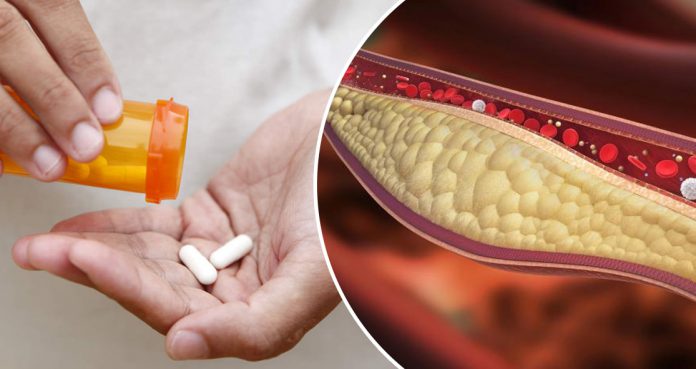According to a study, a new oral cholesterol-lowering drug could help patients with hyperlipidemia or dyslipidemia, who are unable to take statins due to side effects, including myalgia.
A large study, with more than 2,200 participants, was conducted to test the safety and efficacy of bempedoic acid, an oral drug that inhibits the ability of the body to make cholesterol.
The findings were published Wednesday in the New England Journal of Medicine.
According to the researchers of the study, the cholesterol-lowering drug, bempedoic acid, could be prescribed to patients with their existing treatments. It also provides an option for patients who fail to tolerate statins due to adverse effects such as myalgia (muscle pain) or adverse interactions with other drugs.
Professor Kausik Ray, the lead author of the study from Imperial College London’s School of Public Health, said, “We know that reducing your cholesterol levels is key to cutting the risk of heart attack and stroke, particularly if you already have established heart disease.”
He added, “Our latest study shows that bempedoic acid could be another addition to the arsenal of cholesterol-lowering treatments available to patients. What we have is a new class of drug that could be given to patients who are already taking statins and could help them to further reduce their cholesterol levels and thus potentially cut their risk of heart attacks and strokes.”
Excessive LDL (bad) cholesterol in the blood can increase the risk of plaque formation, which clogs blood vessels and results in a heart attack or a stroke.
Patients with diabetes and other inherited conditions, who are at higher risk, are recommended cholesterol-lowering drugs, such as statins, to prevent and reduce the risk.
Like statins, bempedoic acid acts by inhibiting an enzyme called ATP-citrate lyase that is used by the body to make cholesterol.
The study included the patients from the UK, the US, Germany, Poland, and Canada, who were undergoing treatment with cholesterol-lowering drugs. The study also included a small number of patients with a strong family history of hypercholesterolemia, an inherited condition that causes high cholesterol and increases the risk of a heart attack and/or stroke.
After three months of treatment with bempedoic acid, researchers found that patients’ LDL cholesterol levels were reduced from baseline by an average of 18.1% when compared with those who were on placebo. Also, they found that the drug was effective regardless of the intensity of the existing cholesterol-lowering therapy.
Bempedoic acid was also well-tolerated by the patients throughout the study. However, there was an increased incidence of gout (high levels of uric acid in the blood), but other than that, there were no serious health conditions.
Professor Ray said, “One of the key advantages of bempedoic acid is supposed to be that it shouldn’t cause the muscle side effects reported by some statins users, as it is taken up by the liver and needs to be converted into its active form via an enzyme only found in the liver. Once converted to the active form the drug cannot leave the liver, so it can’t enter muscles and hence could be of considerable advantage for some.”
The lead author added, “It could be an option for patients who are unable to tolerate statins at higher doses, or at all. Our genetic studies suggest that the benefit on prevention of heart disease and strokes in ongoing trials should be identical to that achieved through statins.” Esperion, the US pharmaceutical company, is seeking a license to market bempedoic acid this year in the US and Europe.























